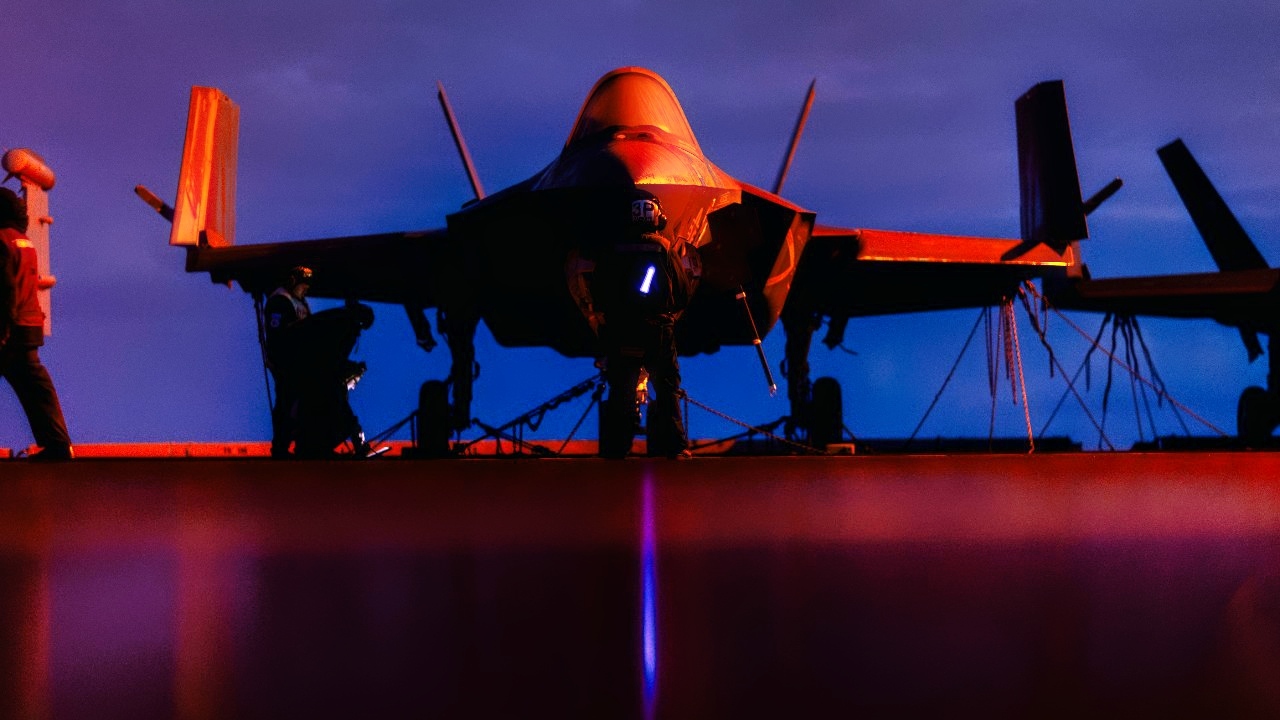Is the UK Getting Cold Feet on the F-35 Fighter?

Summary and Key Points: The future of the RAF's F-35 program is uncertain following Labour's victory in the UK general election, as the new government plans a sweeping defense review.

-Labour's focus on the Global Combat Air Programme (GCAP) could see F-35 orders reduced further.
-Already, the planned acquisition has been cut from 138 to 48, with only 34 delivered. Defense analyst Francis Tusa highlights the F-35's flaws compared to the domestically controlled GCAP.
-While the UK Ministry of Defence reaffirms its commitment, the final decision on the number of F-35s will depend on Labour's prioritization of GCAP and other defense needs.
F-35 in Trouble in UK?
The Lockheed Martin F-35 Lightning II has been in service with the Royal Air Force (RAF) since June 2018, when the first F-35Bs arrived at RAF Marham and formed the reinstituted 617 Squadron "Dambusters." Three years earlier, RAF Lakenheath had been selected as the first U.S. Air Force base in Europe to receive the fifth-generation stealth fighters, and it continues to provide training opportunities with the aircraft in the UK.
However, the future of the F-35 and the RAF has remained very much in question since the Labour Party's massive victory in the general election on July 4. Labour, which returned to power after 14 years, has vowed to carry out a sweeping defense review – and that could result in several programs being scaled back or even canceled outright.
There are already questions as to what it means for the Global Combat Air Programme (GCAP), which evolved from the UK's domestic Tempest project to develop a sixth-generation fighter. However, as The Telegraph newspaper reported, GCAP is "underpinned by a treaty with partner nations Japan and Italy," and that could make it "far trickier politically than cutting F-35s."
Domestic Program May Win Out
The United Kingdom and the United States may maintain a special relationship, but it may only go so far when it comes to the former's defense spending. GCAP may be too important for the UK to scale back from – but the same can't be said of the F-35, especially as it isn't under the control of London.
"The F-35 is very much a less capable, flawed platform, with a quite stormy future, full of uncertainty," Francis Tusa, an independent defense analyst told The Telegraph. "Sure, there isn't yet a flying Tempest. But the three partners are in control of their destinies with it – which is not the case with F-35."
BAE Systems has noted that more than 1,000 suppliers are supporting the GCAP program, while 3,500 people work directly on the development of the aircraft, and further supports 16,000 jobs in the UK.
UK's F-35 Orders Likely to be Cut
Already, the British Ministry of Defence has scaled back its F-35 orders, down from a planned acquisition of 138 F-35Bs – the short/vertical takeoff and landing (S/VTOL) variant of the Joint Strike Fighter – to just 48 aircraft. To date 34 have been delivered.
The previous Conservative government had announced earlier this year that it was "in negotiations" for an additional twenty-seven F-35s, which would see the RAF receive the stealth fighter through 2033. The deal, which Tusa said was valued at around £5 billion ($6.2 billion), has yet to be finalized.
Yet, the MoD has reaffirmed its commitment to the program.
"Whether operating from land or onboard our aircraft carriers as a central component of the UK's Carrier strike capability, the F-35B delivers a cutting-edge capability for the UK," a MoD spokesperson told the UK's paper of record. "We are committed to the F-35 programme, and the UK builds approximately 15pc of each aircraft, securing highly skilled jobs and significant economic growth within the UK."
Supporters of the F-35 program have further noted that it has been widely adopted by NATO allies and regional partners in Europe and the Indo-Pacific – allowing for greater interoperability. It was just last week that Greece officially signed onto the program.
Finding the Middle Ground
It could be well over a decade before the GCAP enters service, and that is provided there are no delays with the program. For that reason, Professor Justin Bronk, a senior research fellow for air power and technology at the Royal United Services Institute (RUSI), suggested that the UK should move to expand its F-35 fleet, albeit cautiously.

"I think the UK should definitely proceed with the follow-on order of 27, to take the fleet to 74," he also told The Telegraph. "That's more or less the functional minimum for the fleet to meet its obligations. Beyond that, I don't see much fiscal room for additional orders in the foreseeable future and, in any case, if there was additional money ... I would put it into weapons and maintenance and spares, to improve the combat capability and availability."
At one point, the UK was on track to be the largest operator of the F-35 in Europe, but it will now be up to Labour to decide not whether the program is scaled back, but by how much.
Author Experience and Expertise: Peter Suciu
Peter Suciu is a Michigan-based writer. He has contributed to more than four dozen magazines, newspapers, and websites with over 3,200 published pieces over a twenty-year career in journalism. He regularly writes about military hardware, firearms history, cybersecurity, politics, and international affairs. Peter is also a Contributing Writer for Forbes and Clearance Jobs. You can follow him on Twitter: @PeterSuciu. You can email the author: Editor@nationalinterest.org.
All images are Creative Commons and/or Shutterstock.
